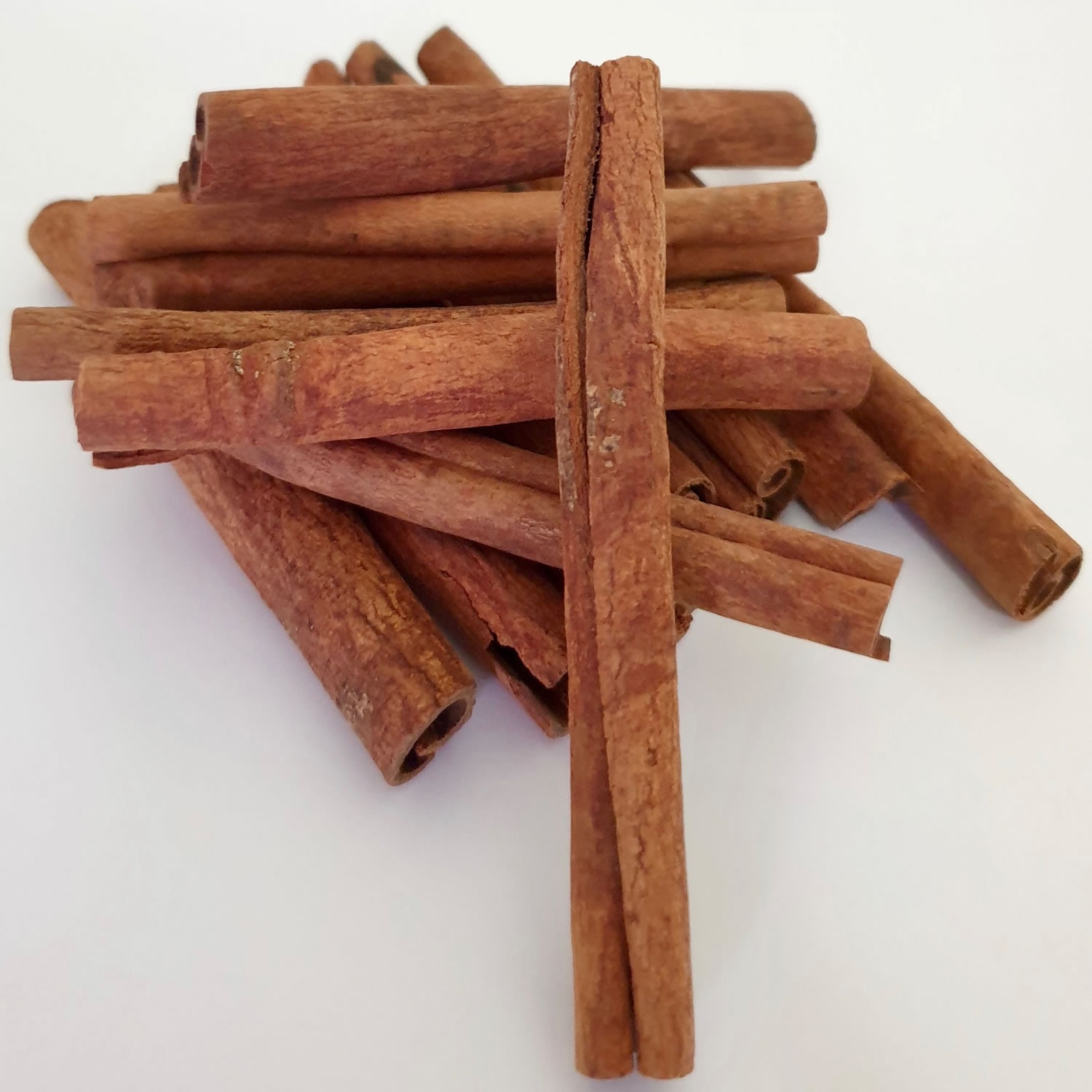Cinnamon Sticks
Product Details
Common uses of cinnamon sticks:
-
Beverages: Cinnamon sticks are often used to flavour hot beverages. They can be added to tea, coffee, hot chocolate, or mulled wine to impart a warm and spicy aroma.
-
Mulled Cider and Wine: Cinnamon sticks are a key ingredient in mulled cider and wine recipes. They are simmered with other spices to infuse the beverage with a rich, spiced flavour.
-
Chai Tea: Cinnamon sticks are a common ingredient in chai tea blends. They are simmered with other spices, tea leaves, and milk to create a fragrant and spiced chai.
-
Stirring Sticks: Cinnamon sticks can be used as stirring sticks for hot beverages, providing a subtle cinnamon flavour as they mix with the drink.
-
Desserts and Baking: Cinnamon sticks are often used in baking and dessert recipes. They can be added to poaching liquids for fruits, custards, rice puddings, and baked goods to infuse a warm cinnamon flavour.
-
Spiced Syrups and Infusions: Cinnamon sticks can be used to make spiced syrups and infusions. These can be added to cocktails, mocktails, or used to sweeten and flavour various dishes.
-
Curries and Stews: Cinnamon sticks are used in savory dishes, including certain curries and stews. They add a warm and sweet undertone to the savory flavours.
-
Rice Dishes: Cinnamon sticks are commonly added to rice dishes, such as pilafs and biryanis, to infuse the rice with a subtle cinnamon aroma.
-
Pickling and Preserving: Cinnamon sticks can be included in pickling solutions and brines for fruits and vegetables. They add a warm and spiced note to the preserved items.
-
Potpourri and Home Fragrance: Cinnamon sticks can be used in potpourri blends or simmered with other aromatic ingredients to create a pleasant and warming home fragrance.
-
Crafts and Decorations: Cinnamon sticks are sometimes used in crafts and decorations, such as wreaths and ornaments. They add a natural and fragrant element to these creations.
-
Health and Wellness Teas: Cinnamon sticks are sometimes used in herbal teas for their potential health benefits. They are believed to have anti-inflammatory and antioxidant properties.
When using cinnamon sticks in cooking or beverages, they are often added whole during cooking and then removed before serving. This allows them to infuse the dish with their flavour without overpowering it. The versatility and aromatic quality of cinnamon sticks make them a popular and beloved spice in many cuisines around the world.
Approximately 80mm long.





Cinnamon cassia sticks 5 Stars
“ Beautiful aroma that lasts and lasts and divine Magick! I use them in my Ritual Oils with other herbs, but the cinnamon is the red dress! ”
Review by on Sunday 10th March 2024